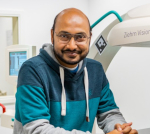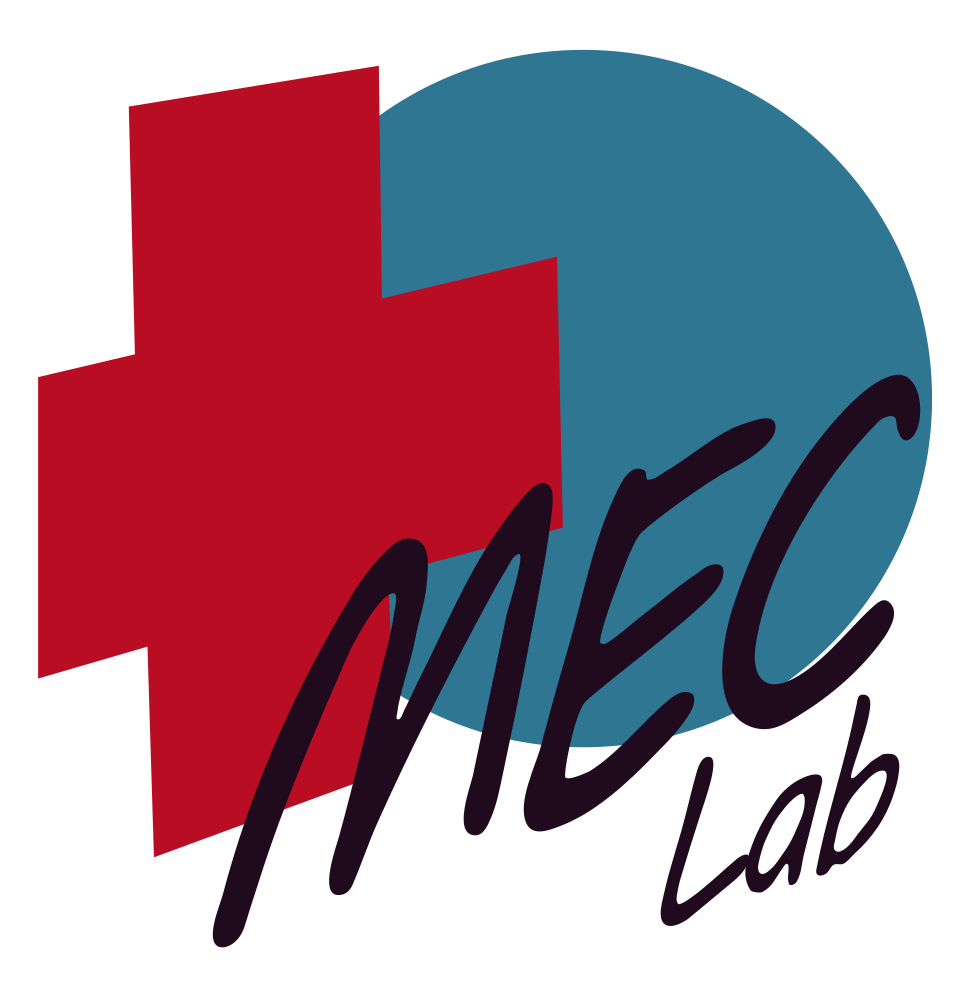Team
Group Leaders
Anirban Mukhopadhyay
 Anirban Mukhopadhyay’s vision is to Reverse Engineer the Doctor’s Mind. He leads an independent research group at TU Darmstadt, Germany that develops assistive AI for Image-guided diagnosis and surgery. He organizes premier international conferences, challenges and workshops. Dr. Mukhopadhyay is the AI-partner of RACOON, the radiology conglomerate of 38 German University hospitals to combat COVID-19. He hosts the popular podcast AI-Ready Healthcare.
Anirban Mukhopadhyay’s vision is to Reverse Engineer the Doctor’s Mind. He leads an independent research group at TU Darmstadt, Germany that develops assistive AI for Image-guided diagnosis and surgery. He organizes premier international conferences, challenges and workshops. Dr. Mukhopadhyay is the AI-partner of RACOON, the radiology conglomerate of 38 German University hospitals to combat COVID-19. He hosts the popular podcast AI-Ready Healthcare.
PhD Students
Amin Ranem
My PhD focuses on Continual Learning with Transformer Architectures for magnetic resonance images (MRIs) and computer tomography (CT) scans. Changing patient populations over time as well as different acquisition techniques across and within medical institutions lead to shifts in the data domain. Networks only trained on a single domain inevitably create unreliable predictions for out-of-distribution images. Transformer Architectures help to contain this restriction, however they are not perfectly suited for a direct application on segmentation tasks. My goal is to use Deep Learning based Transformer registration models for atlas-based segmentation in clinical multi-institutional settings to fully leverage the potential of Transformers known from NLP and Machine Translation.
Antoine Sanner
Henry J. Krumb
My research interests include, but are not limited to:
Navigation and guidance in endovascular surgery (Electromagnetic Tracking, Digital Subtraction Angiography)
Deep Learning for medical imaging (mainly classification, detection, segmentation), in particular for capsule endoscopy
Phantom building, crafting experimental setups and simulations for in-vitro and in-silico studies
Together with my supervisor Anirban Mukhopadhyay, I host the “AI-Ready Healthcare”podcast.
Feel free to reach out to me for Bachelor’s and Master’s theses, VC Praktika or clinical/industrial collaborations.
John Kalkhof
In my PhD, I am working on Neural Cellular Automata (NCA) in medical imaging, i.e. neural adaptation of Cellular Automata such as ‘Game of Life’, which has been shown to be Turing-complete. NCA is a recently emerging field of machine learning, where a model is only one cell in size and can solely communicate with its immediate neighbours. Global knowledge is gained by iteratively applying this model to each cell, e.g. of an image. In this sense, NCAs differ from typical deep learning models, have been shown to be robust in image generation tasks, and generally have fewer than 100k parameters. Despite their small size, they can achieve similar performance to models thousands of times larger in tasks such as segmentation.
Mirko Konstantin
My PhD is focusing on Neural Cellular Automata (NCA) in medical imaging. Especially creating Top-Down models is the main focus of my work.
Furthermore I’m involved in projects in the field of Federated Learning in Digital Pathology.
If you want to get involved in research projects on these topics, please do not hesitate to email me.
Nick Lemke
In my research I focus on resource-constrained AI especially performed with Neural Cellular Automata (NCA) in medical image analysis such as MRI/CT segmentation. Also, I work on Continual Learning, Domain Adaptation and Domain Generalization methods for NCAs or other medical image segmentation models such as UNets. Furthermore, I am interested in Multimodal learning, Natural Language Processing for medicine and Federated Learning
If you want to get involved in a research projects or a bachelor or master’s thesis on these topics feel free to contact me via e-mail: nick.lemke@gris.informatik.tu-…
Niklas Babendererde
My PhD focuses on Federated Learning and Continual Learning in the context of medical imaging.
Furthermore, I am working for the RACOON radiology project, where German university hospitals cooperate to gain a deeper understanding for various diseases.
Ssharvien Kumar
Yannik Frisch
Research topics: Generative Models, Representation Learning, Uncertainty Estimation, Surgical Data Science
If you want to get involved in research projects on these topics and have experience working with Python deep learning libraries, please do not hesitate to email me.
